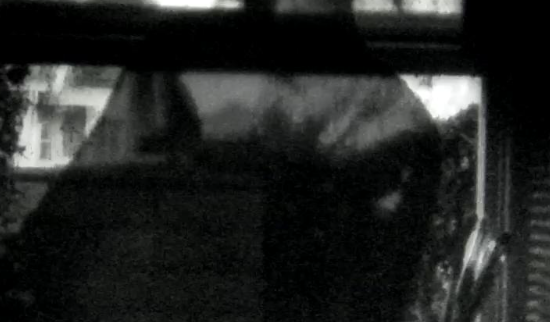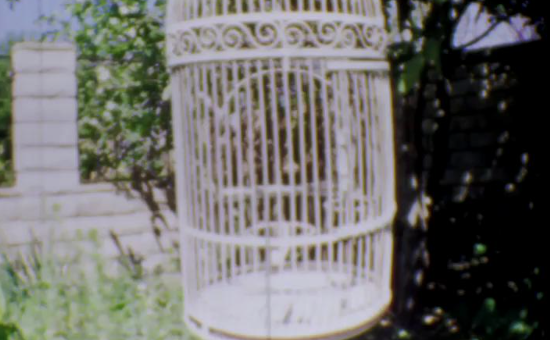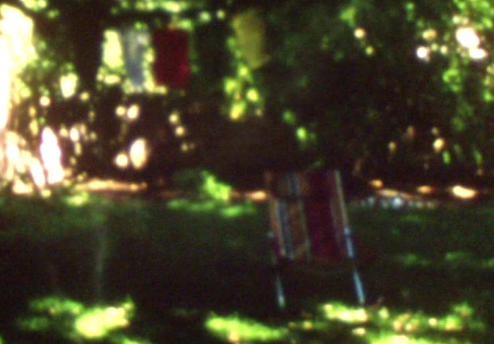Becky Baihui Chen is an LA-based cinematographer from China. Becky was awarded the Sun Cinematography Award, which is supported by the American Society of Cinematographers, and she was selected as a cinematography fellow at Film Independent’s Project Involve. Some of her notable credits include Clarity (2020 Mammoth Film Festival Grand Jury Award), God’s Gracie (2019 Outfest), and LETTERS: The Art of Grieving Documentary (2019 Flickers’ Rhode Island International Film Festival Finalist). As a cinematographer, Becky believes that film can inspire social change and empower individuals, and her fervor for intimate stories has led her to work on projects all over the world. Her fictional narrative work has covered a wide range of genres, from political drama to steampunk fantasy. Her lenses have explored the plight of the LGBTQ+ community in China, the effects of diseases such as ALS and Alzheimer’s, and the dire political situation in Venezuela. On top of her fictional work, Becky’s dive into documentaries provided the opportunity to befriend Afghani refugees in Europe who were talented rap stars and brilliant engineers back in their homeland before being forced to flee their homes. She followed several women artists in their voyage to cope and heal with losing a loved one through their artwork.
An Interview with Becky Baihui Chen:

Was there anything in particular that inspired you to pursue a career in cinematography?
I started with photography at first. It was my hobby growing up. Through some friends I discovered filmmaking and then cinematography, and I fell in love with this way of visual storytelling. I couldn’t be more grateful as I also met various cinematographers that I looked up to and who generously provided the guidance I needed to excel. I was fortunate to be mentored by professors like Linda Brown, Christopher Chomyn, ASC and Jim O’Keeffe, and industry professionals like Peter Levy, ASC, and Paul Maibaum, ASC. They taught me to be resilient, do my best, and create quality work. I wouldn’t have the guts to take on this path as a cinematographer without their encouragement and support.

What excites you most about the craft of cinematography?
There are so many things that excite me about cinematography. I’m not a particularly eloquent person, nor did I grow up feeling comfortable expressing my feelings and emotions with words. Cinematography is not only my way of bringing a narrative to life but also a way of expressing myself. Collaborating with the director to decide on a certain look is very exciting to me because there are so many ways to approach a script visually. It’s also a very rewarding feeling to find people who have similar aesthetic sense as me or those who can brainstorm ideas with. The learning continues and it is never a dull moment.
 How has your experience shooting documentaries influenced your approach to narrative work?
How has your experience shooting documentaries influenced your approach to narrative work?
Cinematography-wise, it has made me trust my instincts and experience because in documentary, you don’t get a second take or always have the time to scout or light your locations. You have to quickly find creative solutions before the moment is gone forever. Time is always against you, so it has trained me to become more adept at setting up each shot with efficiency and precision.
On a more personal level, documentaries provided my own growth as an individual in building empathy and compassion. This holds especially true when I documented the refugee crisis in Europe. Meeting and hearing their stories, their struggles, their fight, etc, truly impacted how I saw the world as I’ve never experienced something close to that realm. Yet, despite all the suffering, they still smiled, laughed, and played. It’s an experience that will forever be ingrained in memory which I reflect on when shooting fictional work. When projects portray fictional characters, the emotions are real. It’s something valuable that both
fiction and non-fiction works share.
 When deciding to work on a project, what do you look for? What types of stories are you most passionate about?
When deciding to work on a project, what do you look for? What types of stories are you most passionate about?
I like stories with inspiring subject matters or those that target social issues. I also love stories that take the audiences on an entertaining ride. I look for projects that have visual challenges. Being able to challenge myself to do something new every time is very exciting.
 Have you developed any habits/rituals as part of your creative process?
Have you developed any habits/rituals as part of your creative process?
I love observing light. It excites me every time I see how light interacts with different textures and colors. I’m usually tempted to stop what I’m doing and immediately take a photo. There was once when I was about to step into the shower, I suddenly noticed the sun directly shining through the small window in my bathroom. The light glistened through the textured glass and created the perfect lighting conditions for portraits. I immediately called my friend to be my model and did a photoshoot, using the light that transformed the simplistic background into a beautiful canvas. That was a really fun experience. As an added bonus, I sometimes use those photographs as my lighting references.
When I am shooting, I like to see if I can use any preexisting light first, whether it’s natural light or practicals. It’s a good rule to find the easiest way to get things done. This allows you to save time and resources, which always is a plus without compromising the quality of the image. I feel like improvisation is so important in art and especially in film-making, there are too many factors that come into play and we’ve got to learn to embrace what’s available.
 Are there any projects you’re currently working on that you’d like to discuss, or goals for your career and artistic development looking forward?
Are there any projects you’re currently working on that you’d like to discuss, or goals for your career and artistic development looking forward?
Yes! I’m currently in pre-production for a horror feature that’s based on Gaston Leroux’s Phantom of the Opera. It’s exciting because this will be my first horror feature, and I’ve been doing a lot of research on how best to approach the look and tone for a classic like this. Another project is somewhat an experimental short film that’s almost like an avant-garde music film with a line of dialogue. I hope to keep challenging myself to do something different every time I explore a narrative. I hope to use my lenses to uplift stories that inspire, make one think, empower, or smile.
 Contact Info:
Contact Info:




No Comments